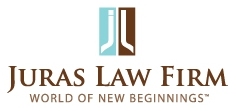Time to prepare for H-1B filing season
As an immigration lawyer, I’m here to simplify the upcoming changes in the H-1B visa filing process for the Fiscal Year 2025, making it easier for you to understand and prepare. The U.S. Citizenship and Immigration Services (USCIS) is introducing a new, beneficiary (employee) centric H-1B registration system. In the past USCIS conducted the selection process by the registrations filed by employers. Multiple employers were filing registration for the same employee. Under the new H-1B registration system, USCIS will conduct the selection process by unique beneficiaries (employees). This system should significantly reduce or eliminate the advantage of submitting multiple registrations for the same employee solely to increase the chances of selection and should give all beneficiaries an equal chance at selection.
Another change is an introduction of organizational accounts. This new USCIS platform allows online collaboration for employers and their legal representatives and submitting the H-1B registrations. It was designed to streamline the H-1B filing process. It is important to start planning who will take the new roles of administrators, creation of different groups and associated legal representatives. Initial H-1B registration period is scheduled from March 6, 2024, at 12 noon (ET) to March 22, 2024, at 12 noon (ET). Make sure to mark these dates on your calendar.
For the first time, the selected employers will be able to file the Petitions for Alien Workers (form I-129) with supporting documents online. Starting April 1, 2024, all H-1B petitions will be subject to new fees. For employers with 26 or more full-time employees, the Form I-129 filing fee will be $780. Small employers (with 25 or fewer full-time employees) and nonprofit entities will be charged $460. Additionally, an asylum program fee is introduced to cover the costs of asylum adjudications: $600 for larger employers (26 or more employees), $300 for smaller employers and no fee for nonprofit organizations. Starting February 26, 2024, the premium processing fee is increasing to $2,805
This shift towards a more transparent and efficient system is a crucial development for employers and prospective H-1B applicants. As always, planning ahead and understanding these changes are key to navigating the H-1B process successfully. If you’re an employer looking to sponsor an employee for H-1B visa or if you are an employee aiming for an H-1B status, our experienced H-1B immigration attorneys are here to guide you through the process. Schedule your consultation with an experienced H-1B immigration attorney TODAY at www.calendly.com/irena-3/30min
We look forward to talking with you and helping you!


